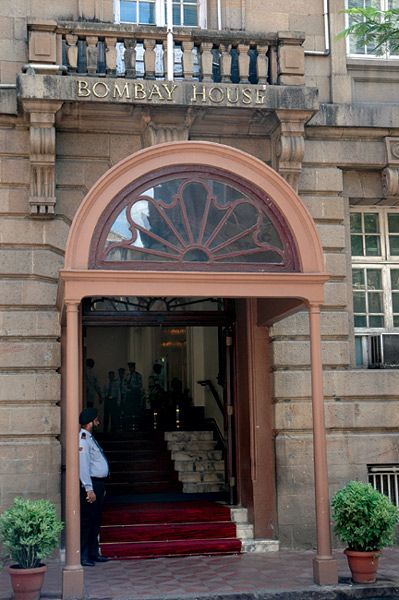 As he steps into his third year as the Tata group chairman, Cyrus Pallonji Mistry has quite a few things to be happy about.
As he steps into his third year as the Tata group chairman, Cyrus Pallonji Mistry has quite a few things to be happy about.
Critics may well view most of his actions as being housekeeping and mere tinkering on the operational front; but the tenure so far of the 46-year-old chief of the Tata group has also been amidst a tough economic environment.
Some of the "housekeeping" could, in fact, be seen as interesting new directions. Consider, for example, the decision to sell the long products division of Tata Steel Europe, which accounts for a fourth of the company's business.
Or, the move to take a $1.6-billion goodwill impairment charge on the books of Tata Steel.
Both the moves were designed to bring Tata Steel Europe back from the brink; they helped the group complete an international refinance programme that has reduced Tata Steel's cost of borrowing.
Tata Chemicals also made a significant write-down of its acquisition of Brunner Mond in 2005, and closed down a factory in the United Kingdom and stopped using another one in Kenya that had been part of that acquisition.
Mr Mistry also dropped Indian Hotels' persistent bid for Orient Express. In many ways, these moves marked a deviation from the policies followed by his predecessor, Ratan Tata.
The younger son of Tata Sons' single-largest shareholder has moved on other fronts as well.
For example, one of his decisions was the formation of four clusters - defence and aerospace, financial services, infrastructure and retail, including consumer-focused businesses - that will get a bulk of the group's future funds.
The investments committed are the highest in the conglomerate's history: Rs 65,000 crore in 2014-15.
An investment of Rs 2 lakh crore has been promised over the next three years. Another significant change has been putting in place a relatively young leadership team, including a chief technology officer for the first time in Tata's history.
The new year will see three new directions: the launch of the Tatas' new airline Vistara, its e-commerce venture and the commissioning of Tata Steel's Kalinganagar plant.
While these are signs of a good beginning, not much is known about what Mr Mistry plans to do with some of the large and struggling firms in the group.
The list is formidable: it includes Indian Hotels, Tata Teleservices, Tata Power, Tata Motors' domestic operations.
The group's international acquisitions, with the exception of Jaguar Land Rover, continue to remain its biggest challenges, given the turbulent global environment.
Besides, the group has to find a way out of its continued over-dependence on just one company, Tata Consultancy Services, which accounted for over 80 per cent of the profits of its listed companies in 2013-14 and 60 per cent of the total market capitalisation.
These are must-dos - especially if Mr Mistry actually wants to live up to his "Vision 2025" document, which aimed for acquiring a fourth of the world's customers and communities experiencing Tata products by then, as well as the group being among the world's top 25 measured both in terms of market capitalisation and brand value.











